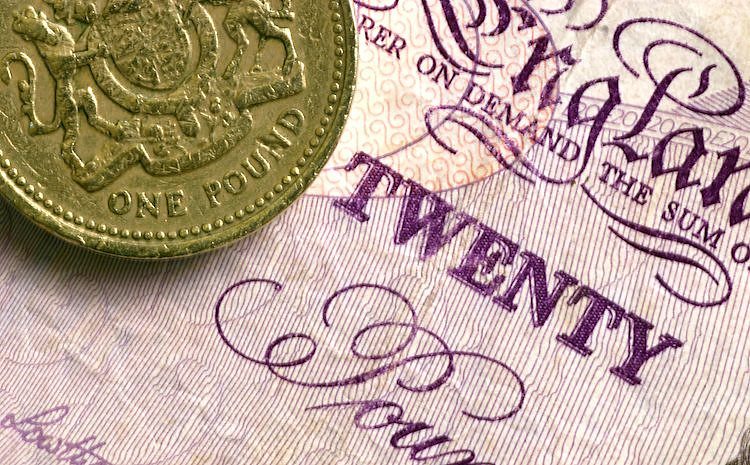Pound Sterling strengthens further as BoE Mann supports restrictive policy for longer
- The Pound Sterling outperforms its major peers as UK Retail Sales grew at a faster-than-expected pace in August
- Fears of UK inflation remaining persistent have deepened after an acceleration in price pressures coming from the services sector.
- The Fed is expected to continue an aggressive policy-easing cycle.

The Pound Sterling (GBP) performs strongly against its major peers on Friday. The British currency strengthens as the United Kingdom (UK) Retail Sales data for August came in stronger than expected. The Retail Sales data, a key measure of consumer spending, rose at a robust pace of 2.5% on year, higher than the estimates of 1.4% and July’s print of 1.5%. On month, Retail Sales grew by 1% against expectations of 0.4% and the 0.5% advance registered in July.
The report showed that households spent heavily on textile clothing and footwear stores and food stores, while sales receipts at other non-food stores declined. Signs of robust demand for durable items could further fuel price pressures, a potential concern after core inflation already came in hotter-than-expected in August. The persistence of high price growth in certain parts of the economy guided the Bank of England (BoE) to leave interest rates unchanged at 5% in Thursday’s policy meeting.
The BoE kept its borrowing rates steady, with an 8-1 vote split. BoE external policy member Swati Dhingra was the only one among the Monetary Policy Committee (MPC) members who voted to cut interest rates by 25 basis points (bps) for the second time in a row. Investors were expecting that Deputy Governor Dave Ramsden would also vote for a cut, but he didn't.
Also, BoE members unanimously voted to trim their government bonds holdings by 100 billion pounds over the coming 12 months.
Meanwhile, BoE external policy member Catherine Mann has supported maintaining a restrictive policy stance for a long once inflation risks are contained, in her speech in the European session.
Daily digest market movers: Pound Sterling surrenders intraday gains against US Dollar as the latter bounces back
- The Pound Sterling gives up the majority of intraday gains after refreshing a two-year high above the crucial resistance of 1.3300 against the US Dollar (USD) in Friday’s North American session. The GBP/USD pair surrenders gains as the US Dollar bounces back. The US Dollar Index (DXY), which tracks the Greenback’s value against six major currencies, recovers strongly to near the crucial resistance of 101.00.
- The broader outlook of the US Dollar remains uncertain amid growing speculation that the Federal Reserve’s (Fed) policy-easing cycle will continue in the last quarter of the year aggressively.
- The Fed kicked off its policy easing cycle on Wednesday with a larger-than-usual rate cut of 50 basis points (bps), pushing borrowing rates lower to 4.75%-5.00%. This bumper rate cut from the Fed was a clear signal that policymakers are more focused on restoring labor market health and are confident about inflation returning to the bank’s target of 2%.
- According to the CME FedWatch tool, the Fed is expected to cut borrowing rates further by 75 bps in the remaining two meetings this year, suggesting that there will be one more 50 bps rate cut. The tool also shows that the likelihood of the Fed reducing interest rates by 50 bps in November is at 43%, higher than the 37% recorded on Thursday. On the contrary, Fed policymakers see the federal fund rates heading to 4.4% by the year-end, a smaller reduction than the one that markets are pricing in.
- Going forward, the next trigger for the Pound Sterling and the US Dollar will be preliminary S&P Global PMI data for September, which will be published on Monday.
Technical Analysis: Pound Sterling remains supported by 20-day EMA
The Pound Sterling seeks to stabilize above 1.3300 against the US Dollar in North American trading hours. The near-term outlook of the GBP/USD pair remains firm as it holds above the 20-day Exponential Moving Average (EMA) near 1.3150. Earlier, the Cable strengthened after recovering from a corrective move to near the trendline plotted from the December 28, 2023, high of 1.2828, from where it delivered a sharp increase after a breakout on August 21.
The 14-day Relative Strength Index (RSI) shifts above 60.00, suggesting an active bullish momentum
Looking up, the Cable will face resistance near the psychological level of 1.3500. On the downside, the psychological level of 1.3000 emerges as crucial support.
BoE FAQs
The Bank of England (BoE) decides monetary policy for the United Kingdom. Its primary goal is to achieve ‘price stability’, or a steady inflation rate of 2%. Its tool for achieving this is via the adjustment of base lending rates. The BoE sets the rate at which it lends to commercial banks and banks lend to each other, determining the level of interest rates in the economy overall. This also impacts the value of the Pound Sterling (GBP).
When inflation is above the Bank of England’s target it responds by raising interest rates, making it more expensive for people and businesses to access credit. This is positive for the Pound Sterling because higher interest rates make the UK a more attractive place for global investors to park their money. When inflation falls below target, it is a sign economic growth is slowing, and the BoE will consider lowering interest rates to cheapen credit in the hope businesses will borrow to invest in growth-generating projects – a negative for the Pound Sterling.
In extreme situations, the Bank of England can enact a policy called Quantitative Easing (QE). QE is the process by which the BoE substantially increases the flow of credit in a stuck financial system. QE is a last resort policy when lowering interest rates will not achieve the necessary result. The process of QE involves the BoE printing money to buy assets – usually government or AAA-rated corporate bonds – from banks and other financial institutions. QE usually results in a weaker Pound Sterling.
Quantitative tightening (QT) is the reverse of QE, enacted when the economy is strengthening and inflation starts rising. Whilst in QE the Bank of England (BoE) purchases government and corporate bonds from financial institutions to encourage them to lend; in QT, the BoE stops buying more bonds, and stops reinvesting the principal maturing on the bonds it already holds. It is usually positive for the Pound Sterling.
Author

Sagar Dua
FXStreet
Sagar Dua is associated with the financial markets from his college days. Along with pursuing post-graduation in Commerce in 2014, he started his markets training with chart analysis.


















